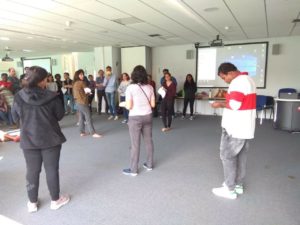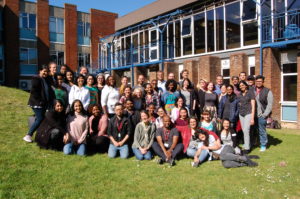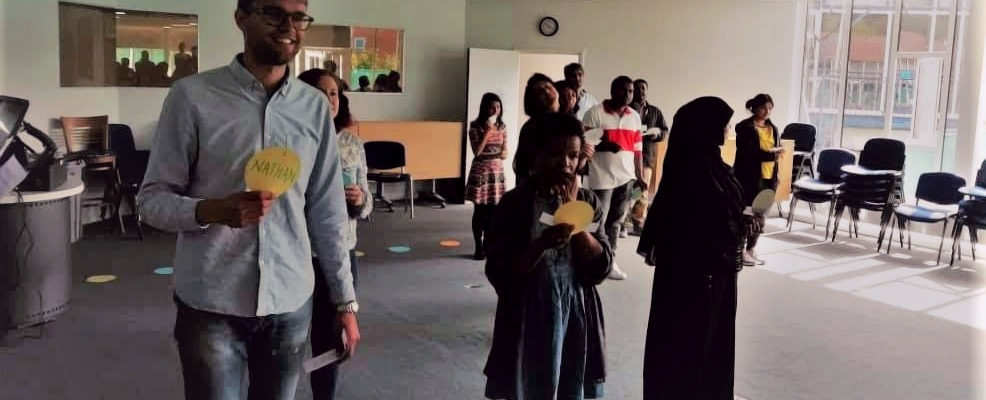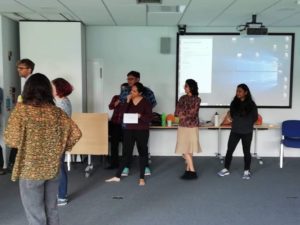Blog post by Soundarya Iyer, Sayan Das, Uma Dey Sarkar, Natasha Maru, Nimita Pandey and Masresha Taye.
In an increasingly complex and dynamic world, how can we envision and strive for sustainable development that upholds ideals of environmental integrity and social justice?
This question is central to the endeavours of the STEPS centre, including its pathways approach. The approach intends to guide ‘thinking and action around emerging sustainability challenges’. Pathways direct us to the variety of ways in which social, technical, and environmental elements of the system change over time and rearrange themselves around such challenges. Recognising multiple framings of the systems allows different pathways to open up for alternative sustainabilities.
The approach does not, however, limit itself to just highlighting the plurality of options; it encourages us to further engage with the that are hidden, obscured or suppressed, and challenging those that dominate. Politics is, thus, inherent to how systems are framed and how different pathways are negotiated in relation to one another. Understanding politics requires comprehending the struggle between diverse interest groups and institutions, continuously being made and unmade by the processes of power, its assertions and contestations. In other words, the pathways approach calls for a clearer understanding of the relational nature of power and its processes to situate them in the contested terrain of unequal power relations.
The STEPS Summer School unconference
Last May, a group of us at the 2019 STEPS Summer School came together to reflect on the relational aspects of power in the pathways approach. During the unconference at the end of the Summer School two-week programme, we adapted the vulnerability walk, an experiential learning game that aims to explain the concept of vulnerability. The vulnerability walk aims to highlight how social differentiation makes different people vulnerable to risks differently. It is a role-playing game where players are given characters based on a specific context, and a series of yes/no questions are asked based on which players can take a step forward or remain in place. Their characters are revealed at the end of the game, and a discussion on how they progressed (or not) ensues.
The idea behind adapting the game was to deepen our understanding of power as it is produced and reproduced at multiple scales. This is especially relevant in the current post-political environment where solutions to intensely contested issues are often framed in terms of techno-managerial governance, thus acting to straitjacket what sustainable development means or how best to achieve it. Visualising and understanding power as being embedded in and internally related to the process of transformation provides an opportunity to deconstruct narratives of ‘best practices’. It also opens up spaces where diverse knowledges as well as contestations are valued as pointers to a process of deliberative, democratic transition for the most marginalised.
Adapting the game
To highlight how power shapes each step that is taken by participants in the game, we added enablers and detractors. These were institutions (such as microfinance, a biotechnology corporation or a Non-Governmental organisation) that were beneficial to a certain individual but impoverished another. We also introduced a relationality between the players, by complicating the character sketches of the players as well as questions posed to them. For instance, a question on the ability to question the local administration on the loss of agricultural land due to the construction of a dam led to different responses based on the position of the individual in relation to other players and the context. . This was a conscious attempt to show how vulnerability does not simply impact individuals but is social.
Lastly, we felt that it was essential to not only highlight structural aspects of vulnerability but also allow for individual choices to be made, un-made, overcome and negotiated at each step. We were looking to highlight how power is not discrete, but relational, and despite structural inequalities, individuals could exercise agency.
Challenging the ‘anti-relational habit’ by introducing relational power
We were inspired by the work of David Mosse to challenge the ‘anti-relational habit of exteriorising poverty’ in the treatment of power. Through using the vulnerability walk, which has become a common experiential learning game to illustrate the concept of vulnerability in international settings, we attempted to show how power and politics are negotiated continuously between institutions and individuals, and that individuals do not act in isolation, but in a social context. Despite structural constraints, there was room for and individual agency in specific trajectories that unfolded.
Playing the game
 The following summarises the game as we presented it at the STEPS Summer School un-conference. (Click on the links to see copies of the resources related to the game.)
The following summarises the game as we presented it at the STEPS Summer School un-conference. (Click on the links to see copies of the resources related to the game.)
- Introduction – we provided a short introduction to the game, briefly setting the context, explaining the rules and describing what they can expect to happen.
- Characters – we provided twelve character sketches that outline each character’s name, age, gender, socio-economic
status and a brief historical biography.  Questions – these were directed at each player/character as devices for moving the gameplay forward.
Questions – these were directed at each player/character as devices for moving the gameplay forward.- Facilitation – to facilitate learning and discussion around the game, we compiled a list of prompts and key questions, encouraging players to reflect on the experience of playing the game, both personally and in relation to power, relationality and vulnerability.
apply now for summer school 2020

The authors participated in the STEPS Summer School in May 2019. The ninth and final STEPS Summer School on Pathways to Sustainability will take place on 11-22 May 2020.
Applications for the 2020 Summer School are open now. Find out more and apply here.

